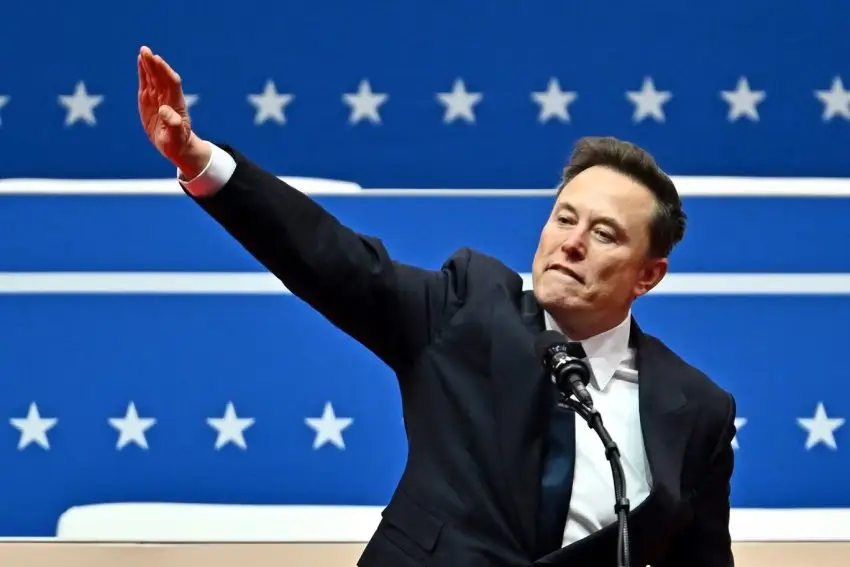On Elon Musk and Bangladesh
Elon Musk has long been an advocate of minimal government interference paired with maximum governance efficiency, a philosophy that, in his mind, would create a utopian landscape of unbridled innovation, hyper-productivity, and an unshackled private sector. It is, in essence, the governmental equivalent of a Tesla on Autopilot—efficient, self-regulating, and largely free from human error (though, much like Autopilot, one must wonder what happens when the sensors fail). His vision is rooted in the belief that government should act as a referee rather than a meddling coach, setting the rules of the game but staying out of the play. This approach stems from Musk’s own experience navigating regulatory hurdles in the realms of electric vehicles, private spaceflight, and neurotechnology, where he often sees red tape as an unnecessary barrier to progress rather than a safeguard against chaos.
Elon Musk’s philosophy or one can say, Muskist philosophy is built on a first-principles approach—breaking complex systems down to their fundamental truths and rebuilding them for efficiency. Applying this to government, he envisions a system devoid of bureaucratic bloat, where overregulation, inefficiencies, and budgetary excesses are mercilessly excised in favour of lean, data-driven decision-making. The American permitting process, for instance, has frequently found itself in Musk’s crosshairs. Whether it’s securing approval for a new Gigafactory or launching Starship into orbit, Elon Musk has openly criticised the sluggish pace of government agencies that take years to do what private companies achieve in months. In one particularly pointed remark, he noted that bureaucracies operate under the assumption that adding layers of oversight always improves outcomes, whereas in reality, it often achieves the opposite.
Elon Musk’s engagement with the Department of Government Efficiency (DOGE) exemplifies his broader outlook on governance. He believes that with a streamlined government, America could supercharge its economy, drive technological advancement, and outcompete rivals like China, where decision-making is often swift and unencumbered by democratic processes. Of course, the counterargument is that China’s efficiency comes at the ‘cost of individual freedoms’—a trade-off Musk would hardly endorse. Nonetheless, his call for “less government” is not merely an exercise in rhetoric; it aligns with historical trends where deregulation has led to booms in sectors like telecommunications, aviation, and finance, albeit sometimes with unintended consequences (the 2008 financial crisis being a cautionary tale).
Turning to Bangladesh, one finds a nation brimming with potential but hamstrung by bureaucratic inefficiencies that would leave even the most experienced Indian passport office clerk or a Japanese construction permit officer overwhelmed. The country’s governance model is an intriguing mix of colonial-era red tape, political patronage, and an institutional inclination towards centralisation, resulting in a system that often prioritises inertia over action. Infrastructure projects can take decades to materialise, business registrations involve Kafkaesque loops of paperwork, and regulatory bodies seem to exist primarily to create bottlenecks rather than facilitate growth. The World Bank’s Doing Business Index has repeatedly highlighted Bangladesh’s struggles with bureaucratic inefficiency, ranking it among the more challenging places to start and operate a business.
Musk’s vision of minimal government and maximum efficiency offers an interesting thought experiment for Bangladesh. If adopted, it could entail the aggressive streamlining of ministries, eliminating redundant agencies, and simplifying regulatory frameworks to encourage entrepreneurship. Imagine a Bangladesh where setting up a business is as easy as signing up for Starlink—a process that takes minutes rather than months. The textile sector, the backbone of the nation’s economy, could benefit immensely from a governance model that focuses on infrastructure development without the bureaucratic delays that have historically hampered port expansions and logistics improvements. Similarly, Bangladesh’s burgeoning IT sector, often hailed as the next big thing, could thrive under policies that prioritise rapid execution over bureaucratic caution.
However, there is a hook. Elon Musk’s model assumes that reducing government involvement leads to efficiency, but Bangladesh’s socio-economic realities paint a more complex picture. A country with significant poverty, income disparity, and vulnerability to climate change requires a proactive government to provide essential services, from healthcare to disaster response. Musk’s libertarian-leaning approach might argue that too much government fosters dependency, but an entirely hands-off approach risks exacerbating inequality. The challenge, therefore, lies in finding a middle ground—a government that is lean but effective, ensuring essential services while removing unnecessary obstacles to innovation and growth.
One area where Elon Musk’s approach could have immediate impact is in public sector accountability. In the Muskist universe, governance would be as data-driven as Tesla’s autopilot software, with performance metrics replacing bureaucratic hierarchies. Imagine a Bangladesh where government offices operate with real-time efficiency dashboards, tracking productivity and resource allocation as transparently as SpaceX monitors rocket launches. Public funds could be distributed based on performance metrics rather than political allegiance, a shift that would fundamentally alter the nation’s governance culture.
Critics of Elon Musk’s governance model argue that his disdain for regulation overlooks the necessity of checks and balances, especially in societies where corruption and corporate monopolies are genuine threats. Bangladesh’s history of financial mismanagement and political favouritism underscores the importance of a strong regulatory framework. However, the counterargument is that excessive oversight often breeds inefficiency, as seen in the country’s infamously slow decision-making processes. A Musk-inspired governance overhaul would require a delicate balancing act—dismantling bureaucratic inefficiencies while preserving essential oversight mechanisms.
A Muskist vision for governance, if transplanted to Bangladesh, would be both an exhilarating and daunting experiment. The country stands at a crossroads: it can either continue grappling with its bureaucratic inertia or embrace a governance model that prioritises speed, efficiency, and innovation. Perhaps the ideal solution lies somewhere in between—a system that borrows Musk’s principles of minimal intervention but tempers them with the realities of a developing economy. If nothing else, it would certainly make for an interesting case study, possibly inspiring the next generation of policymakers to think less like traditional bureaucrats and more like engineers solving a complex optimisation problem. And who knows? If Bangladesh manages to pull it off, perhaps Musk himself might take an interest—after all, he’s already conquered electric cars, space, and neural implants, why not governance next?
——
Rajeev Ahmed
The Editor of Geopolits.com and the Author of the book titled Bengal Nexus
—–

